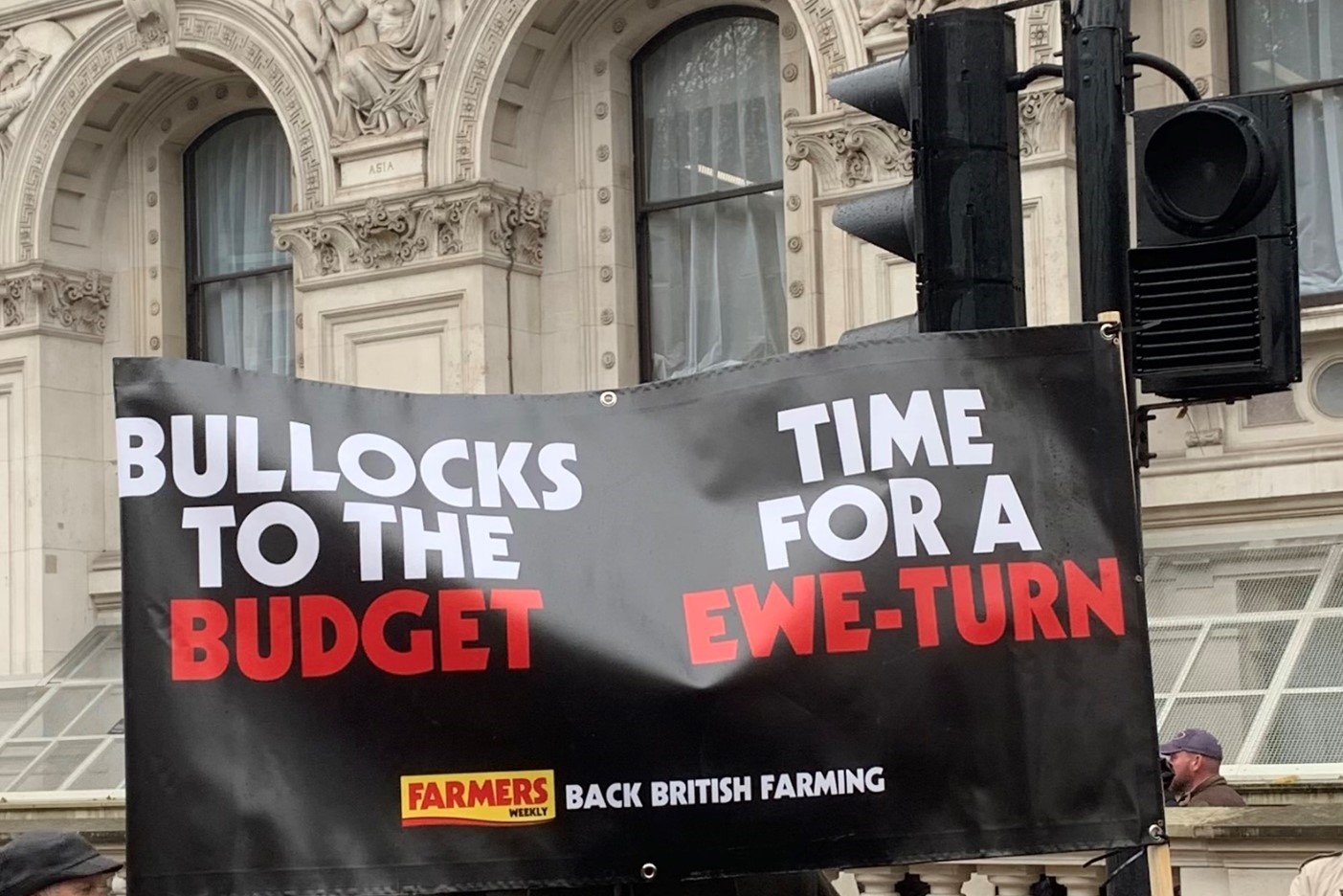The Chancellor has announced significant changes to Agricultural Property Relief which will have seismic effects throughout the agrarian economy and may affect Britain’s food security. In this article, Nicholas Thompson, a Trainee Solicitor in our Private Client Team, reviews what we know so far.

Today, farmers took to Whitehall to express their opposition to proposed changes announced in the Autumn Budget. Farmers engaged in a range of activities from a peaceful protest on Whitehall collecting fresh British produce brought into the capital for distribution at food banks to a series of talks hosted by the National Farmers’ Union (“NFU”) at Church House and individual meetings between farmers and their local MPs at the Palace of Westminster.
Agricultural Property Relief (“APR”) is a 50% or 100% relief on inheritance tax (“IHT”) in relation to agricultural property which was introduced by the Inheritance Tax Act of 1984 following Nigel Lawson’s first budget which set out ‘a radical programme of tax reform’. APR was introduced alongside the abolition of the 1% National Insurance surcharge for employers and the investment income surcharge. This meant that the impact of the introduction of APR was not realised until later when it was recognised as being vital for Britain’s food security.
Business Property Relief (“BPR”), introduced by Denis Healey in the Inheritance Tax Act of 1976, operates in the same way as APR but relates to qualifying property held for business purposes. In an agricultural context, this may include milking companies, farming machinery hire businesses, and wool-processing operations.
On 30 October 2024, Rachel Reeves delivered her first budget which included significant reforms to the APR and BPR. Whereas, these previously operated as 100% reliefs on IHT, the reliefs are proposed to apply at 50% on IHT liability above one million pounds (effectively a 20% tax rate).
Draft legislation has not yet been released but His Majesty’s Treasury has published a nine-page summary of the proposed changes effective 26 April 2026. This confirms that the one million pound allowances for APR & BPR do not ‘stack’. In other words, if one were to have one million pounds of agricultural property qualifying for APR, one would have no allowance left for BPR and all BPR-qualifying assets would be subject to IHT at a rate of 20%.
In practice, the one million pounds allocation will apply to the combined value of qualifying-APR and qualifying-BPR property. The allowance will be applied proportionately across qualifying property, with all other property taxed at 20%. The specifics of how this would work will be determined by draft legislation when this becomes available.
All guidance published thus far is clear that any unused allowance for APR and BPR will not be transferable between spouses and civil partners. This differs from the residence nil-rate band relief which presently applies to one’s main residence when passed from a parent to a direct descendent where the relief of a deceased spouse or civil partner can be added. This relief, in combination with the nil-rate band relief which operates similarly, leads to the statement that a married couple or civil partners can pass-on one million pounds tax free.
The residence nil-rate band relief is of little use to many British farmers who often live in the farmhouse of their working farm. In these cases, the line between so-called ‘residence’ and ‘agricultural’ property is blurred. Previously, when making a claim for the application of APR on the whole of the farm, the focus has been on establishing that the farmhouse is character appropriate by reference to its size, layout, and content to the area of farmland being farmed. This was considered in Lloyds TSB (personal representative of Antrobus) v IRC [2002] STC (SCD) 468 which decided that the Tudor and Georgian farmhouse Cookhill Priory qualified as agricultural property, part and parcel with its enclosing 126 acres of agricultural pastureland and outbuildings. No doubt this approach will now have to be reviewed for future APR applications.
Finally, it should be noted that where there is IHT payable and the instalment option is chosen to pay this tax charge over a number of years then HMRC interest (which is currently set at 7.5% however this will increase by 1.5% from April 2025) will accrue from each instalment date, rather than from the date of death or other chargeable event, per section 234 of the Inheritance Tax Act of 1984.
In response to the APR and BPR proposals, DEFRA confirmed on 14 November that they had heard these proposals for the first time on the eve of the Autumn Budget. DEFRA apparently proposed allowances for older farmers (e.g., those in their eighties) to retain the current system due to their significantly reduced opportunity for effective estate planning by utilising, for example, the seven-year rule. We understand the NFU is supportive of such an amendment to the proposals in order to reduce the number of family farmers forced to sell-up due to unviability of their farms following an IHT raid.
We would be happy to assist anyone who may need to update their existing will, or make one for the first time, in order to ensure their estate planning is up to date. A professionally drawn will alongside an estate planning strategy, both updated at regular intervals, is always advisable to minimise the risk of falling foul of changes to legislation.
Please contact Catherine Pugsley or Nicholas Thompson on 0207 222 5381 to discuss this further.

